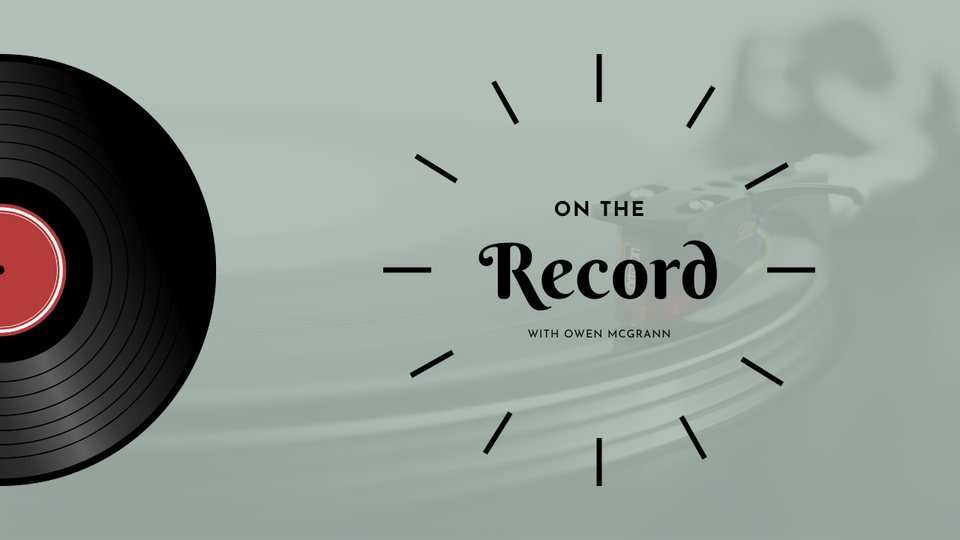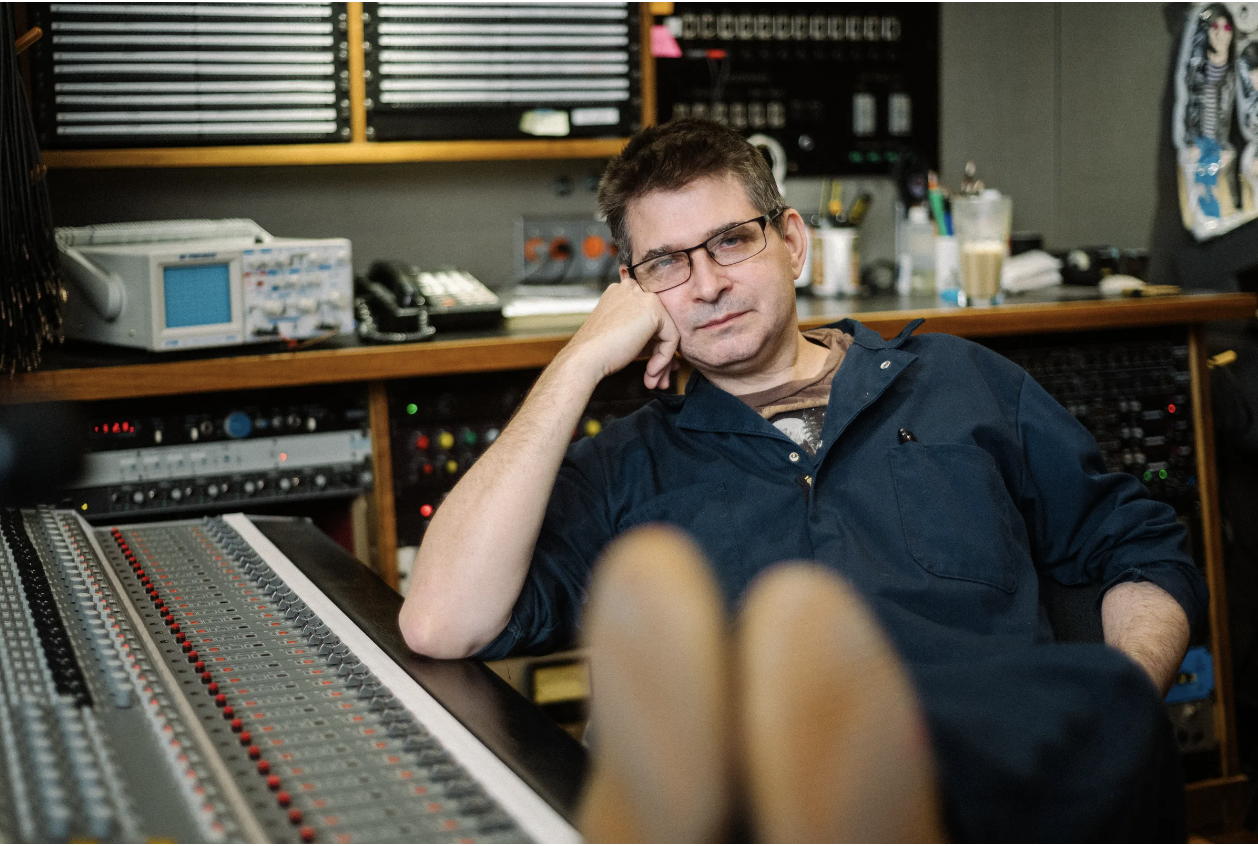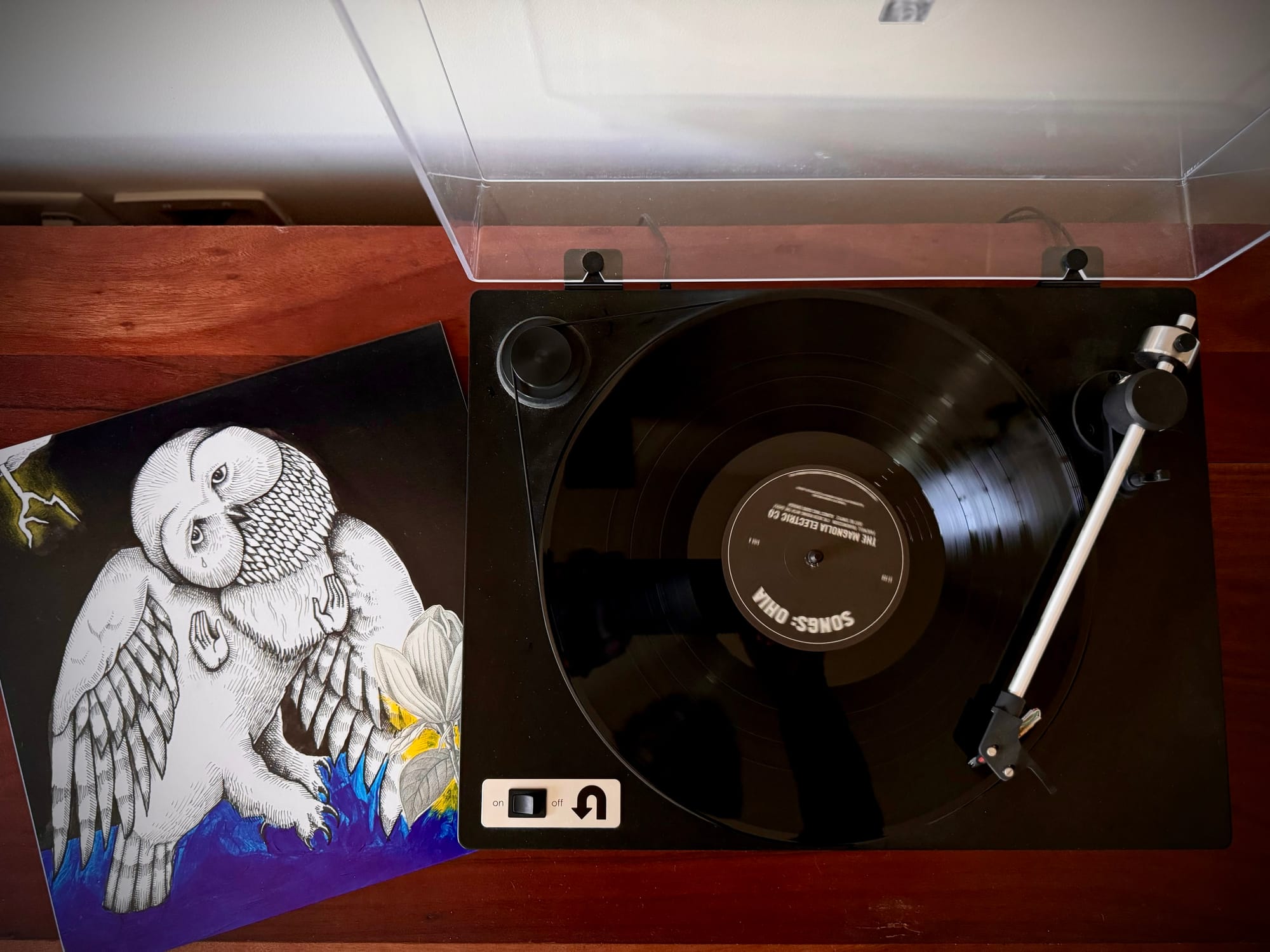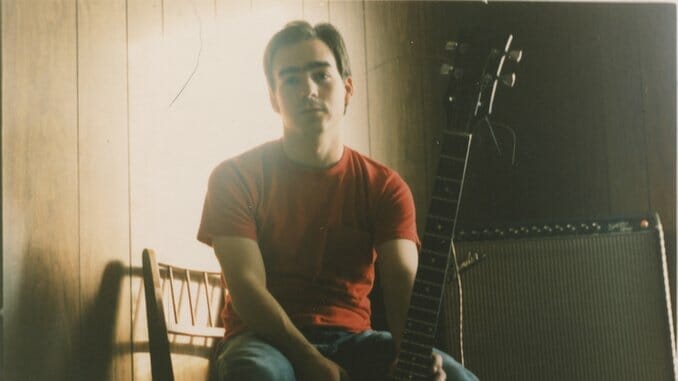OTR, Take 53: Songs: Ohia - The Magnolia Electric Co.

Listen along to this masterpiece on Tidal or Spotify.
Why put a new address on the same old loneliness
Ever since Steve Albini passed away last month, I've wanted to write about this singular figure in American music. I wasn't sure how to crack open my feelings about Albini. He lived as he died: doing the work without much fuss. I have to admit being surprised by how deeply I felt his loss. I'd always admired his own music with Shellac and other bands more than I liked it. His work making records for others at Electrical Audio, his Chicago studio, is the stuff of legend.
Much has been written about Albini in the wake of his too-early passing at 61 and I don't know him or his work well enough to add anything new or interesting. And then it dawned on me as I was flipping through my records this morning that Albini recorded one of my favorite albums ever. (Truthfully, he engineered many of my favorite albums – Mclusky, Mclusky Do Dallas; Don Caballero, American Don; Dirty Three, Ocean Songs; Palace Music, Viva Last Blues; Low, Secret Name and Things We Lost in the Fire; Cloud Nothings, Attack on Memory; a ton of The Wedding Present albums; and on and on.)
So we'll get to Songs: Ohia's final album, The Magnolia Electric Co. in a moment, but first – thanks, Steve. You made the music world a much, much better place.

I hear that station bell ring
You might be holding the last light I see
Before the dark finally gets a hold of me
Jason Molina was one of the greatest songwriters of the past fifty years, whether you've heard of him or not. He had impeccable taste, a deeply human lyrical sensibility grounded in the despair and hope of existence, and he literally drank himself to death from organ failure in 2013 at 39 years of age. As someone who has suffered from failing organs, let me tell you: that's not a fun way to go.
I sometimes think of art as an attempt to see the world as it is, stripped of the patina of the stories we tell ourselves about our lives to justify (gestures wildly) all this. If this is remotely accurate, that art enables us to glimpse the world without the comforting stories we tell ourselves, then it's not much of a surprise that artists tend to be a bit on the depressive side of things.
If you came to On the Record for an uplifting read, I don't know what to tell you. You should know better 🤣
But I'll offer a glimmer of hope. I offer this album, one of the most dead-eyed stares into the void I've ever encountered, one of the rare moments of human courage to retain hope despite it all.

John Henry split my heart, split this full moon heart
I first heard Songs: Ohia when I was in grad school, dead in the middle of an upstate New York winter. I thought I'd experienced winters; I'm from Pittsburgh, after all! I've been caught in three-foot snowfalls! I moved to Binghamton, NY without once giving thought to what winter would be like. I wouldn't call this a mistake so much as hilariously naive.
Upstate winters have a relentlessness that is a quality of its own. It's not that there's a ton of snow (although there's a lot of it) or that it's cold (and it is). What gets you is that from November 1 through April 15, or thereabouts, it never relents. Every night for four months, a fresh four to six inches of snow drop. Every day for that same period, you huddle inside because the wind cuts through you and leaves you half sleepy and half wired, some middle passage that has a hazy and clarifying quality all at once.
A friend told me I should check out Molina's work. He heard that I liked Will Oldham's music and, back then, Molina and Oldham were considered to be similar artists. (I heard only superficial similarities both then and now, but that's for a different discussion.) So I downloaded Ghost Tropic and Didn't It Rain in January 2004. Didn't It Rain became the soundtrack of the period of my life between college and law school. I listened to it on my big studio headphones as I huffed it around campus, as I drove around town, as I sat grading papers.
And, it occurs to me now, the second track on Didn't It Rain is titled, "Steve Albini's Blues."
Anyway, Didn't It Rain is a spartan, elemental record. You can hear the space, the lyrics hanging in a purposeful void. It's my favorite Molina record, even if not his best. From the first time I heard "Blue Factory Flame" I was riveted. I mean, the opening verse drops this like it's nothing:
When I die
Put my bones in an empty street
To remind me how it used to be
Don't write my name on stone
Bring a Coleman lantern and a radio
A Cleveland game and two fishing poles
And watch with me from the shore
Ghostly steel and iron ore
Ships coming home
There was a short period when I passed the flame he discusses in the song regularly when I lived in Cleveland in 2005-06. It haunted me. No: present tense. It haunts me still.
I remember when it didn't used to be so hard
This used to be impossible
The Magnolia Electric Co. directly follows Didn't It Rain, recorded in 2002 and released in March 2003. It has that signature Albini sound: it just sounds like a bunch of folks in a room, playing music. And boy, could these guys play!
As music has moved more and more into singles and songs crammed-to-the-gills with stuff happening, it's easy to forget that albums exist where the whole is greater than the parts, where each song reverberates and refracts common themes, metaphors, and tropes. This album is one of those, with each song circling Molina's overriding concern: how to be human, how to stay alive, how to keep trying. On the first track, "Farewell Transmission," Molina sets forth one of the most plainspoken call to arms for what we're all supposed to do here that I've ever come across:
The real truth about it is
No one gets it right
The real truth about it is
We're all supposed to try
If that's not a perfect distillation of pragmatism as a life philosophy, I don't know what is.

Death pervades all of Molina's music, but perhaps more than any other album of his, The Magnolia Electric Co. confronts not just death but the will to live. Nowhere is this more front-and-center than in "Almost Was Good Enough."
A few OTRs back, I wrote about keeping things truly dear to me a little too close to the vest. I promised to be more open about the things closest to my heart. Well, friends, "Almost Was Good Enough" is a song that's saved my life. It is as close to my heart as anything I can share in these pages. It's a song about depression and the lies it tells us. It is, ultimately, a song offering hope. It is so good, I'm going to let it have the last word. No clever tying up of seemingly loose threads. Just Molina:
It's been hard doing anything
Winter's stuck around so long
I kept trying anyhow and I'm still trying now
Just to keep working, just to keep working.
I remember when it didn't use to be so hard
This used to be impossible
A new season has to begin
I can feel it leaning in whispering
"Nothing's lonely now
Nothing anymore in pain."
A tall shadow dressed how secrets always dress
When they want everyone to know that they're around.
Leaning in whispering
"My friend over there don't know what he's talking about."
Did you really believe, come one, did you really believe
That everyone makes it out?
Almost no one makes it out.
Almost no one makes it out.
Almost no one makes it out.
I'm going to us that street to hide
From that human doubt
To hide from what was shining and has finally burned us out.
Almost no one makes it out.
Almost no one makes it out.
No one makes it out
You're talking to one right now
For once almost was good enough
You're talking to one right now.
Member discussion